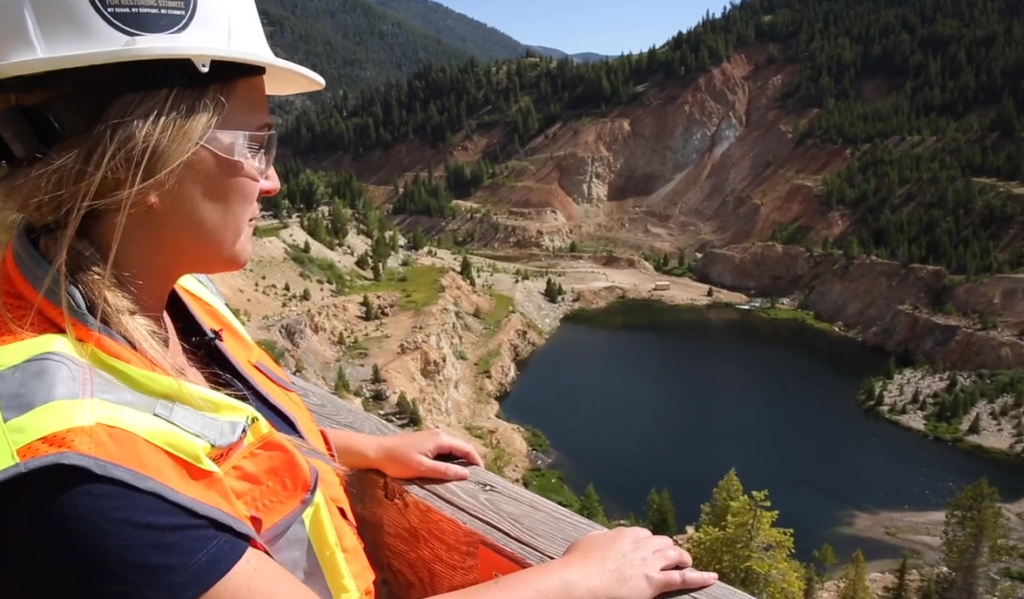On Behalf of Green Group, AP Story Misleads on Process for Getting Mining Projects Approved

An Associated Press story about a mining project in Idaho misled readers about the mining company’s role in the process to win approval for the project in an effort to tilt opinion against it.
“Mining company writing own environmental report,” read the headline on the AP story in the Saturday edition of the Lewiston Tribune. “Forest Service records detail decision to allow Midas Gold to prepare document on proposed open-pit Idaho gold mines,” read the subhead.
Midas Gold seeks to mine gold and antimony – which is used in lead for storage batteries and as a flame retardant – in the Stibnite Mining District of Idaho. It is preparing a biological assessment of the project, which determines – among other things – the effects on species in the area and the cost and substance of habitat restoration.
The AP story, by Keith Ridler, paints this as a conspiracy to bypass regulators and approve an unsafe project. “Documents show the U.S. Forest Service allowed a Canadian company to write a key environmental report on its proposed open-pit gold mines in Central Idaho after the Trump administration became involved,” Ridler wrote.
“The documents obtained by conservation group Earthworks show British Columbia-based Midas Gold’s lobbying efforts after initial rebuffs from the Forest Service,” Ridler wrote.
He stated: “An internal Forest Service document in February 2018 shows the agency deciding to deny Midas Gold’s request to participate as a non-federal representative in writing the assessment because the massive project would likely harm protected fish. But by October 2018, Midas Gold was not only a participant, it had taken over leading the process and writing the document.” At some point, thanks to “lobbying efforts” by Midas Gold, “resistance” within the Forest Service to Midas Gold working on the assessment “crumbled” and the firm was tasked with preparing the report.
The first sentence in that paragraph is the equivalent of saying a criminal defendant should not be allowed an attorney because the prosecutor has already determined the defendant to be guilty. That same document revealed some agency personnel did want Midas Gold to prepare the preliminary biological assessment and that, contrary to Ridler’s assertion later in the piece, the firm was never denied permission to do so.
Ridler’s story relied extensively on quotes from academics and members of anti-mining groups. “It’s particularly inappropriate for a mining company to be analyzing their own project,” an official of Earthworks stated. A professor at Boise State said it wasn’t unusual for companies to lobby for their projects, “but he said having a company get the OK to write its own biological assessment is something he’s never heard of before,” Ridler wrote.
It’s not unusual at all. Agencies, such as the Bureau of Land Management, the Natural Resource Conservation Service and the Federal Aviation Administration, typically invite applicants into the process of reviewing their plans early to provide technical expertise and local knowledge they have gained through their research. The Federal Energy Regulatory Commission requires it for hydropower projects.
Agencies designate them as “non-federal representatives” to give them a place at the table to evaluate the project, resolve conflicts and minimize impact on wildlife.
Further, the company stressed in its response that these are mere drafts, and the U.S. Forest Service, which has jurisdiction over the project and final say on the document, is required by law to then “independently review and evaluate the scope and contests of the biological assessment.”
Midas Gold also pointed out the company is meeting monthly with five federal agencies, three state agencies and nearby tribes – the company said it pushed for involvement by the state and tribes to ensure all stakeholders were on board with whatever was produced.




